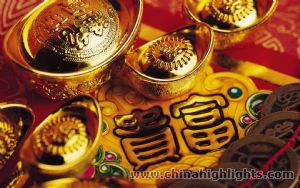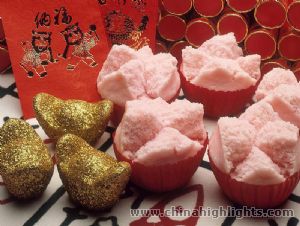- Home
- About Us
- News
- Products and Solutions
- Service and Support
- Contact Us
Home> News
Tocom Celebrates Chinese Spring Festival
Release date:2010-2-1 0:50:52 read times
Dear Valued Customer,
We are pleased to let you know that we will have 7-day public holiday to celebrate Chinese Spring Festival from Feb. 13 to Feb. 20
During this period, our sales person will check email and reply as usual, while since most of the Chinese companies don’t work during holiday, it might be hard to get necessary information from our vendors/partners, which makes it difficult to reply your inquiry. So it’s high appreciated if you could contact us as soon as possible once you could think of any question before holiday, and then we could arrange to prepare in advance.
For any urgent matters, please call us at 0086-13311852640.
Thank you and take care!
****Some interesting things about Spring Festival
Chinese New Year, Lunar New Year, or Spring Festival is the most important of the traditional Chinese holidays. It is commonly called "Lunar New Year", because it is based on the lunisolar Chinese calendar. The festival traditionally begins on the first day of the first month (Chinese: 正月; pinyin: zhēng yuè) in the Chinese calendar and ends with Lantern Festival which is on the 15th day. Chinese New Year's Eve is known as chú xī. It literally means "Year-pass Eve".
Chinese New Year is the longest and most important festivity in the Chinese Lunar Calendar. The origin of Chinese New Year is itself centuries old and gains significance because of several myths and traditions. Ancient Chinese New Year is a reflection on how the people behaved and what they believed in the most.
Chinese New Year is celebrated in countries and territories with significant Han Chinese populations (Chinatowns), such as Mainland China, Hong Kong, Macau, Singapore, Taiwan, Indonesia, Laos, Malaysia, the Philippines, and Thailand. Chinese New Year is considered a major holiday for the Chinese and has had influence on the new year celebrations of its geographic neighbors, as well as cultures with whom the Chinese have had extensive interaction. These include Koreans (Seollal), Tibetans and Bhutanese (Losar), Mongolians (Tsagaan Sar), Vietnamese (Tết), and the Japanese before 1873 (Oshogatsu).
In countries such as Australia, Canada and the United States, although Chinese New Year is not an official holiday, many ethnic Chinese hold large celebrations and Australia Post, Canada Post, and the US Postal Service issue New Year's themed stamps.
Within China, regional customs and traditions concerning the celebration of the Chinese new year vary widely. People will pour out their money to buy presents, decoration, material, food, and clothing. It is also the tradition that every family thoroughly cleans the house to sweep away any ill-fortune in hopes to make way for good incoming luck. Windows and doors will be decorated with red colour paper-cuts and couplets with popular themes of “happiness”, “wealth”, and “longevity”. On the Eve of Chinese New Year, supper is a feast with families. Food will include such items as pigs, ducks, chicken and sweet delicacies. The family will end the night with firecrackers. Early the next morning, children will greet their parents by wishing them a healthy and happy new year, and receive money in red paper envelopes. The Chinese New Year tradition is a great way to reconcile; forgetting all grudges, and sincerely wish peace and happiness for everyone.
Although the Chinese calendar traditionally does not use continuously numbered years, outside China its years are often numbered from the reign of the Yellow Emperor, Huangdi. But at least three different years numbered 1 are now used by various scholars, making the year 2010 "Chinese Year"



